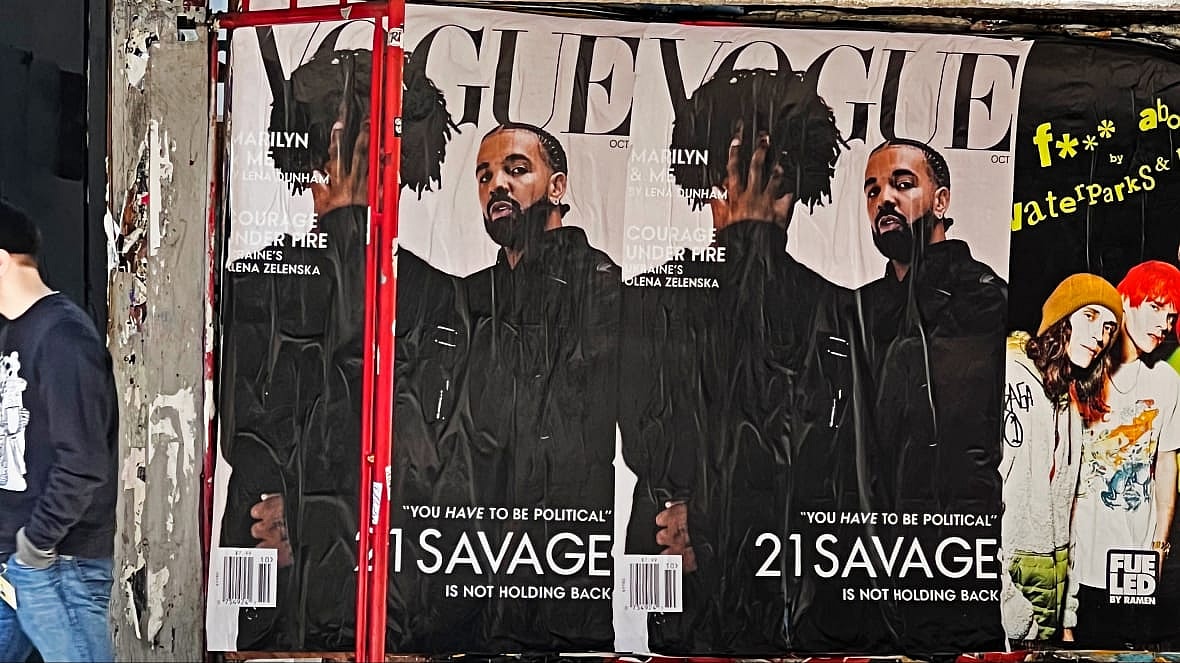Drake and 21 Savage have settled their legal dispute with Condé Nast over a fake Vogue magazine cover they used to promote their November collaborative album, “Her Loss.”
While a formal notice of settlement has not yet been submitted to the federal court handling the case, the agreement includes a permanent injunction prohibiting the rappers’ future use of Condé Nast’s trademarks for Vogue. It also comes with an undisclosed monetary payment from Drake and 21 Savage, according to Billboard.
Condé Nast general counsel William Bowes, noting that the company is glad to be moving forward, conceded that there would be times when Vogue is referenced in other creative works but said this situation was different.

“In this instance, however, it was clear to us that Drake and 21 Savage leveraged Vogue’s reputation for their own commercial purposes,” Bowes wrote in an internal announcement letter, Billboard reported, “and, in the process, confused audiences who trust Vogue as the authoritative voice on fashion and culture.”
Drake and 21 Savage — whose real names are Aubrey Graham and Shéyaa Bin Abraham-Joseph — used the phony Vogue cover as part of a broader marketing campaign to advertise the November release of their collaborative album. As part of it, they hosted an extensive fake interview with radio don Howard Stern, uploaded a fictitious “Saturday Night Live” performance and hinted at a similar false appearance on NPR’s “Tiny Desk” series.
NPR and Stern openly accepted the joke, but Condé Nast wasn’t amused. The company explicitly referred to Drake’s teaser Instagram post for the fictitious Vogue cover story, in which he thanked its renowned veteran editor, Anna Wintour.
A federal judge later issued a preliminary injunction requiring the rappers to delete any references to the fake magazine cover, ruling that it most likely breached the publisher’s trademarks by “misleading consumers” and “deceiving the public.”
Condé Nast repeatedly tried to settle the conflict amicably, according to Bowes, but was left with no choice after the celebrities refused demands to cease, he wrote.
In a lawsuit filed on Nov. 7 in Manhattan federal court, the publisher claimed the stunt violated the company’s trademark rights and intended to take advantage of the “tremendous value that a cover feature in Vogue magazine carries” without really obtaining that distinction.
“What courts have generally said is that when they’re convinced that it’s art — which again, they might not be here — then they want some really compelling evidence that it’s going to cause harm to the trademark owner,” Harvard Law School professor Rebecca Tushnet told Rolling Stone when Condé Nast initially filed the lawsuit, “usually by some explicitly false statement.”
TheGrio is FREE on your TV via Apple TV, Amazon Fire, Roku and Android TV. Also, please download theGrio mobile apps today!

